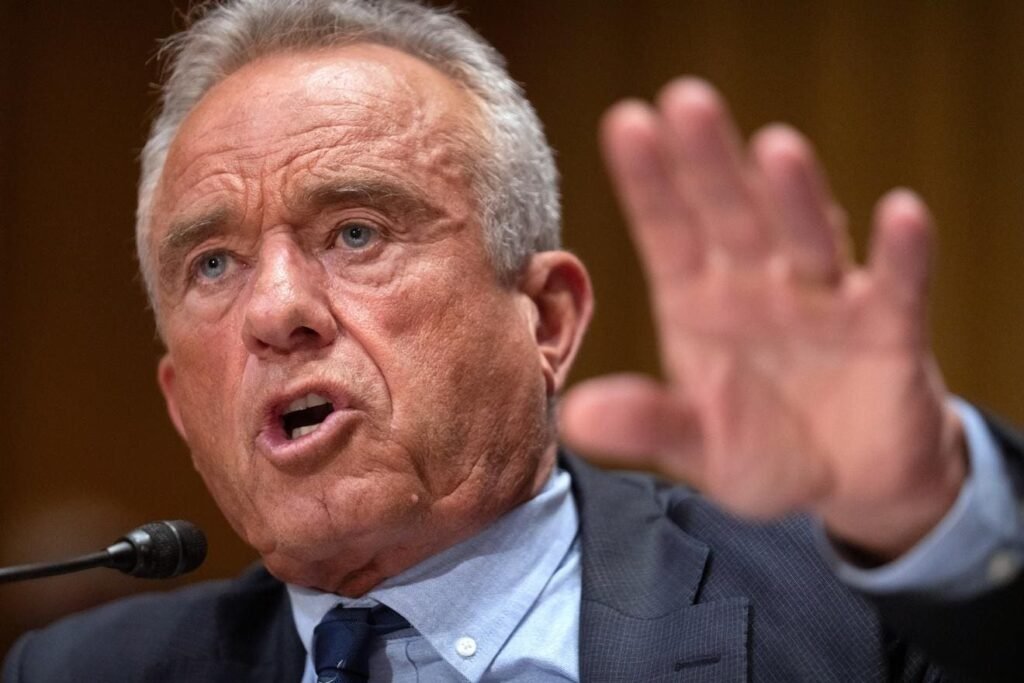Secretary of Health and Human Services Robert F. Kennedy Jr.
The Associated Press
Tylenol maker Kenvue is reeling after unsupported claims that its popular drug causes autism. Kennedy is unlikely to stop there.
Tylenol may be only the beginning.
For years, Robert F. Kennedy Jr. has criticized various medications and therapies, alleging without scientific consensus or evidence that they cause harm—such as autism (Tylenol) and suicidal thoughts (Ozempic). Now, as the head of Health and Human Services under President Trump, he is beginning to translate his views into public policy. His “Make American Healthy Again” initiative has already made it more challenging for people to receive COVID-19 vaccinations and promoted unverified claims about Tylenol. And he is just getting started. So, what could be next? Kennedy has already given us a glimpse.
In a letter to 22 Republican attorneys general, Kennedy and FDA Commissioner Marty Makary mentioned that the FDA was assessing the safety of the abortion drug mifepristone, which is utilized in nearly two-thirds of medical abortions. Restricting access to this pill would significantly impact abortion access.
Another target of Kennedy’s criticism is antidepressants. During his confirmation hearings, he wrongly stated that individuals have a harder time discontinuing the use of serotonin-based antidepressants “than people have getting off heroin.” He has also made baseless claims that teenagers who use these antidepressants are more likely to commit school shootings (which is not true).
One of the goals of Kennedy’s “Make America Healthy Again” movement is to evaluate the prevalence and threat posed by the prescription of selective serotonin reuptake inhibitors. Any restrictions on these medications would be concerning for the approximately 11% of the population that uses them to manage depression, anxiety, and other conditions.
Statins are another frequent target of Kennedy’s criticism, with over 92 million Americans taking them to prevent heart disease and lower cholesterol. While most studies indicate that statins are safe and effective in preventing heart disease, which is the leading cause of death in Americans, Kennedy’s organization, Children’s Health Defense, has published articles questioning the relationship between cholesterol and heart disease.
Kennedy has also targeted newer innovations like GLP-1s, which are used to treat diabetes and obesity. Despite the success of these drugs, Kennedy has criticized their cost and made false claims about them. For example, he falsely stated that Novo Nordisk, the manufacturer of Ozempic, does not market the drug in Europe (which it does).
In a recent move, Kennedy rejected a plan to have Medicare cover the cost of GLP-1 drugs for obesity, potentially signaling further restrictions on their use in the future.
Despite pushback from various sectors, Kennedy remains steadfast in his views and continues to advocate for stricter regulations on certain medications and therapies. It remains to be seen if his stance will change in the future.
MORE FROM FORBES


